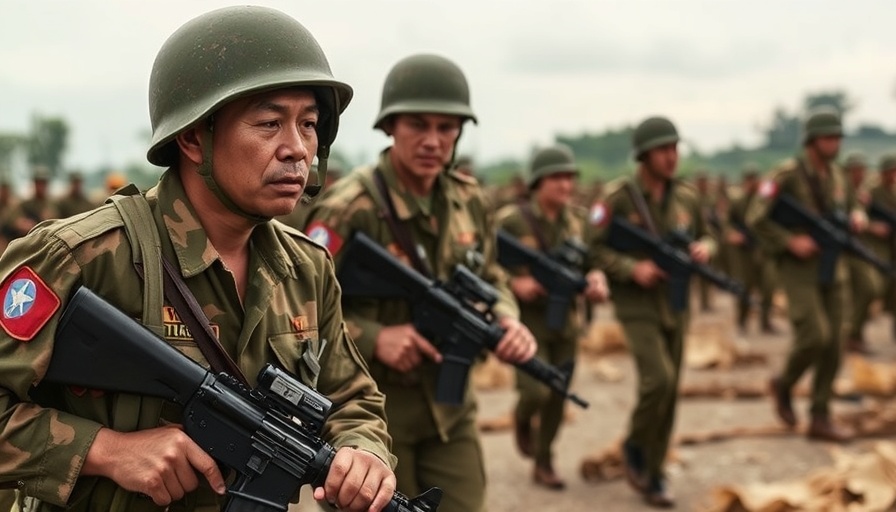
Understanding the Vietnam War: A Complex Legacy
The recent Netflix docuseries, "Turning Point: The Vietnam War," poignantly retraces the harrowing events of the Vietnam War, shedding light on its multifaceted impacts fifty years after the fall of Saigon. Director Brian Knappenberger emphasizes that contemporary viewers, especially the younger generation, can discover resonances with today’s social, political, and cultural dilemmas. The series intends to remind us that the wounds of history are not easily healed, and it invites us to reflect on how past conflicts continue to shape our present society.
What Led to the Vietnam War's Catastrophic Outcomes?
The Vietnam War, marked by intense military engagement from the United States, resulted in the loss of over 58,000 American lives and countless Vietnamese. Knappenberger argues that this conflict serves to illustrate the disparity between governmental rhetoric and the on-ground realities faced by soldiers and civilians alike. The series unveils numerous narratives, challenging viewers to reconcile their understanding of history with the emotional truths of those who lived through it. The war exposed deep-seated issues within American governance and civic society, fostering a rising skepticism that persists to this day.
Unpacking the Emotional and Cultural Ramifications
Drawing from the insightful perspectives of Vietnamese-American historian Viet Thanh Nguyen, the docuseries reflects on the dichotomy of experiences of those involved in the conflict. As Nguyen poignantly stated, history is composed of both facts and narratives. The experiences of South Vietnamese refugees, like Nguyen himself, reveal a rich tapestry of conflicting histories that shaped individual identities and collective memories. This illustrates how societal trauma affects generations, leading to complex cultural dialogues about wartime narratives and shared memories.
The Role of Media in Shaping Perception
One of the critical areas examined in the docuseries is the role of media coverage during the Vietnam War. The televised reports significantly altered public perception, fostering a break from the previously held sanctity of the armed forces. As Americans began to witness the brutal consequences of warfare, trust in the government and its institutions eroded. This transformation in public sentiment marks a significant turning point in American history, reflecting how transparency—or the lack thereof—shapes societal values.
Lessons for Future Generations
As we reflect on the complex narrative of the Vietnam War, there are essential lessons to consider. The docuseries invites today’s viewers to analyze our contemporary geopolitical landscape and think critically about international interventions. Understanding the consequences of past military actions can inform better decision-making in the future, emphasizing the significance of empathy and comprehensive historical knowledge in shaping a more peaceful world.
Final Thoughts: Engaging with Our Shared History
As digital nomads explore diverse cultures and global histories, engaging with significant events like the Vietnam War becomes integral to understanding not only the past but also the world we inhabit today. "Turning Point: The Vietnam War" serves as a crucial resource that aids in this journey, fostering crucial conversations about war, peace, and the interconnectedness of human stories. Being aware of our shared history equips us with the insight needed for mindful travel and deeper connections with the places we visit.
 Add Row
Add Row  Add
Add 




Write A Comment